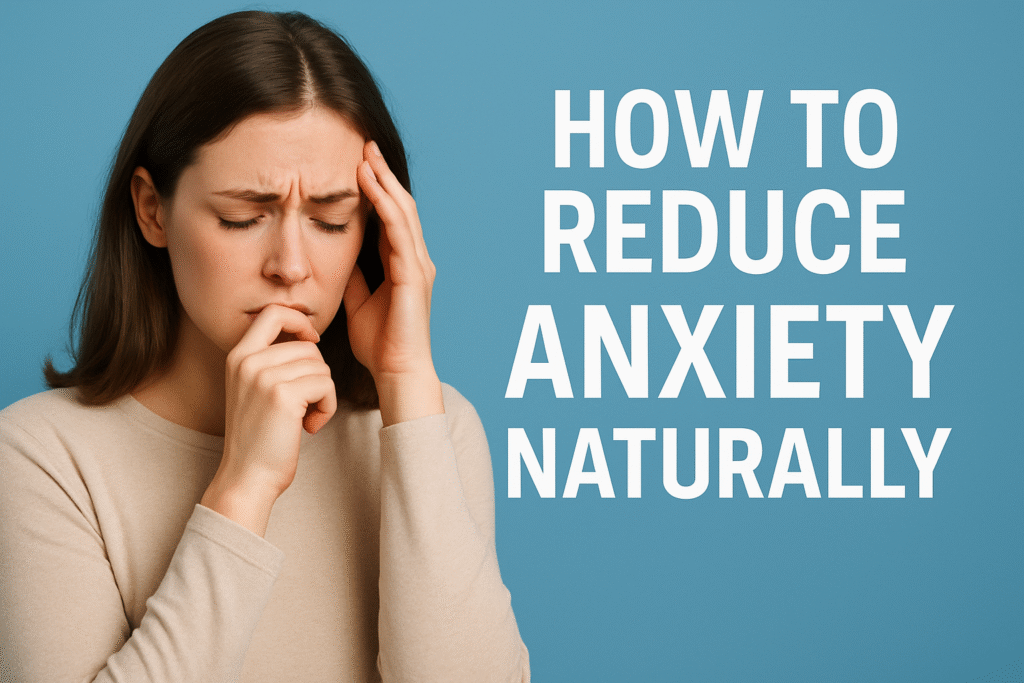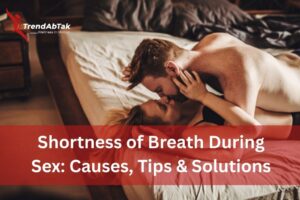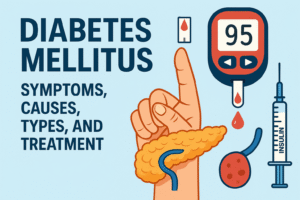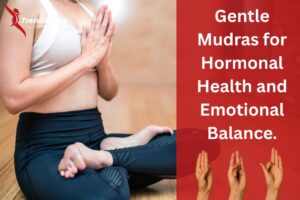How to Reduce Anxiety Naturally

Anxiety is a word we hear all the time, and for good reason. Life moves fast. Between the pressures of work, relationships, finances, and even the constant digital noise we absorb every day, it’s no surprise that so many people feel overwhelmed, on edge, or unable to switch off their racing thoughts.
While medication can be a life-saver for many, not everyone wants to take that route—or at least, not as their first step. The good news is that there are a variety of natural, effective ways to reduce anxiety. Some are backed by science. Others have stood the test of time. But most importantly, these techniques are accessible to just about anyone.
If you’re looking for a way to feel more grounded and less controlled by worry, this guide is for you.
Understanding Anxiety: What’s Really Going On?
Before diving into solutions, it helps to understand what anxiety actually is. At its core, anxiety is your body’s natural response to stress. It’s a signal—one meant to keep you safe. But sometimes, that signal gets stuck in the “on” position. Your mind spins with worry, your heart races, and small tasks can feel like climbing a mountain.
In other words, anxiety isn’t just “in your head.” It shows up in your body, too. That’s why the best natural approaches tackle both the mental and physical sides of the equation.
1. Breathe Better: The Foundation of Calm
When you’re anxious, your breathing changes—often becoming shallow and rapid. This sends a message to your brain: “Something’s wrong.” And just like that, your nervous system goes into overdrive.
But the reverse is also true. When you slow and deepen your breath, you can shift your body into a state of calm.
Try this simple technique:
– Box Breathing: Inhale for 4 counts, hold for 4, exhale for 4, hold again for 4. Repeat for a few minutes. You can do this anywhere—before a meeting, in bed, or even in traffic.
Over time, conscious breathing retrains your body to respond more calmly to stress.
2. Move Your Body (Even a Little Bit)
You don’t have to become a marathon runner to feel the mental benefits of movement. Exercise—especially rhythmic activities like walking, swimming, cycling, or dancing—helps regulate stress hormones and boosts feel-good chemicals like serotonin and endorphins.
In fact, regular physical activity is one of the most evidence-backed methods for reducing anxiety. Even just 20–30 minutes a day can make a noticeable difference.
And if you can, take it outside. Exposure to sunlight and nature amplifies the calming effects. Think of it as medicine, without the side effects.
3. Nourish to Flourish: The Food-Mood Connection
What you eat affects how you feel. That’s not just a catchy phrase—it’s a fact. Your gut is often referred to as your “second brain,” and it produces around 90% of your serotonin, a key player in mood regulation.
Here are a few basic principles:
– Eat more whole foods. Think fruits, vegetables, legumes, nuts, whole grains, and lean proteins.
– Limit processed sugars and caffeine. These can spike your energy and then drop it fast, fueling anxiety.
– Include omega-3 fats. Found in fish like salmon or plant sources like flaxseeds, omega-3s have been linked to improved mood and lower anxiety.
– Drink enough water. Dehydration can mimic the symptoms of anxiety—fatigue, confusion, and irritability.
You don’t need to overhaul your entire diet overnight. Start by making one small change each week.
4. Get Real Sleep (Not Just Time in Bed)
There’s a tight relationship between sleep and anxiety. The less you sleep, the more anxious you feel. And the more anxious you are, the harder it is to sleep. Breaking this cycle can be tough—but not impossible.
Some helpful tips:
– Keep a consistent sleep schedule. Go to bed and wake up at the same time every day—even on weekends.
– Create a wind-down routine. Dim the lights, turn off screens, and do something relaxing like reading, stretching, or listening to calming music.
– Avoid stimulants. Skip caffeine after 2 PM and avoid alcohol too close to bedtime.
– Try natural sleep aids. Herbal teas like chamomile, or supplements like magnesium and melatonin (with guidance), can be supportive.
Improving your sleep hygiene can lead to massive improvements in how you feel during the day.
5. Embrace Mindfulness and Meditation
If anxiety pulls your thoughts into the future, mindfulness brings you back to the present. It’s about observing your thoughts without judgment and reconnecting with your body, your breath, and the now.
You don’t need to sit cross-legged for hours to benefit. Start small:
– Try a guided meditation app. like Headspace or Insight Timer.
– Practice 5 minutes of silence. Focus on your breath, a candle, or the sounds around you.
– Use grounding techniques. Name five things you can see, four you can touch, three you can hear, two you can smell, and one you can taste.
Over time, mindfulness changes the structure of your brain, strengthening the parts involved in emotion regulation.
6. Herbal Remedies That Support Calm
Mother Nature has given us a variety of plants that help ease anxiety. While they won’t work the same for everyone, many people find relief from herbs like:
– Ashwagandha: An adaptogen that helps balance stress hormones.
– Chamomile: Gentle and soothing, often used in teas.
– Lavender: Known for its calming scent and effects; available as tea, oil, or supplements.
– Valerian root: Often used for anxiety and sleep issues.
– Passionflower: Can reduce racing thoughts and support relaxation.
Always check with a doctor or herbalist before adding herbs, especially if you’re taking medication.
7. Declutter Your Life (Mentally and Physically)
Clutter—whether in your home or your mind—can fuel feelings of stress. A messy space can make your brain feel more scattered and anxious, even if you don’t realize it.
Try this:
– Tidy one small area. A drawer, your desk, your nightstand. Small wins create momentum.
– Limit digital clutter. Unsubscribe from emails, mute unhelpful notifications, or take a short social media detox.
– Journal your thoughts. Writing down worries can help get them out of your head and onto paper, where they feel more manageable.
Simplifying your environment can bring a surprising sense of relief.
8. Connect With Others
Anxiety often thrives in isolation. Talking to someone—even just one trusted friend—can bring perspective, validation, and comfort.
You don’t need a huge circle. What matters most is the quality of your relationships. Whether it’s joining a support group, calling a family member, or spending time with a pet, connection reminds us that we’re not alone in our struggles.
And if you feel like your anxiety is more than you can handle, speaking with a therapist is a powerful and courageous step.
9. Limit Anxiety Triggers
Sometimes anxiety has clear roots. Maybe it’s a toxic relationship, a job that doesn’t fit, or too much screen time. Take some time to reflect:
– What activities or people leave you feeling drained?
– What habits do you know aren’t helping—but keep repeating?
Start by identifying one anxiety trigger you can reduce or avoid. Then work from there. Setting boundaries isn’t selfish—it’s self-preservation.
10. Practice Patience and Self-Compassion
Last but not least: be gentle with yourself. Reducing anxiety is not a race or a one-size-fits-all path. Some days will feel easier than others. That’s normal.
Celebrate small victories. Did you take a walk today? Choose water over soda? Turn off your phone early? That counts.
Anxiety may be part of your story—but it doesn’t have to define you. You are not broken. You’re a human navigating a noisy world. And by choosing to take care of yourself, you’re already doing something remarkable.
FAQs: How to Reduce Anxiety Naturally
1. Can anxiety really be managed without medication?
Yes, many people successfully manage mild to moderate anxiety through lifestyle changes such as improved sleep, diet, exercise, breathing techniques, and mindfulness. However, for severe or persistent anxiety, it’s important to consult with a mental health professional.
2. What are the best natural supplements for anxiety?
Some commonly used natural remedies include ashwagandha, chamomile, magnesium, lavender, passionflower, and L-theanine. While these can be effective, always speak with a healthcare provider before starting any supplement, especially if you’re taking medications.
3. How long does it take for natural methods to work?
It varies. Some techniques, like deep breathing or grounding exercises, may bring immediate relief. Others, like dietary changes, improved sleep, or regular meditation, can take a few weeks to show lasting results.
4. Is exercise really that helpful for anxiety?
Absolutely. Exercise reduces stress hormones and increases the release of endorphins and serotonin—chemicals that help boost your mood and lower anxiety. Even a short daily walk can make a noticeable difference over time.
5. What kind of diet helps reduce anxiety?
A balanced diet rich in whole foods—fruits, vegetables, lean proteins, whole grains, and omega-3 fats—supports brain health and stabilizes mood. Reducing sugar, processed foods, alcohol, and caffeine may also help reduce anxiety symptoms.
6. Does cutting out caffeine help?
For many people, yes. Caffeine can increase heart rate and nervousness, which may mimic or worsen anxiety. If you’re sensitive to caffeine, try reducing your intake or switching to herbal alternatives.
7. Can I manage anxiety with breathing alone?
Breathing techniques can provide immediate relief by calming your nervous system. While they’re not a standalone cure, they’re a powerful tool when used regularly in combination with other natural methods.
8. Is it normal to feel anxious even when nothing is wrong?
Yes. Anxiety doesn’t always need a specific trigger. Sometimes it’s the result of past experiences, imbalanced brain chemicals, or chronic stress. Natural methods can help retrain your brain and body to feel safer and more relaxed.
9. When should I seek professional help?
If anxiety is interfering with your daily life, relationships, work, or sleep—and natural methods aren’t enough—it’s time to speak with a doctor or therapist. You deserve support, and professional help can make a big difference.
10. Are there any risks in trying natural remedies?
Most natural methods are safe for most people. However, herbal supplements can interact with medications or cause side effects. Always consult a healthcare provider before starting any new regimen.






